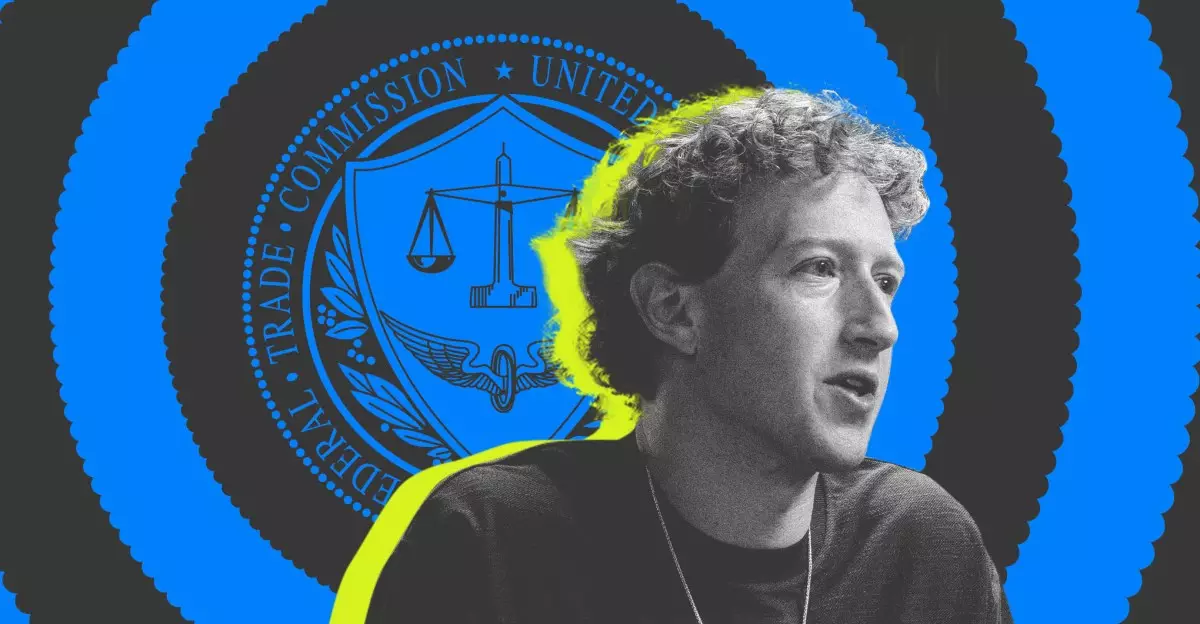The trajectory of Meta, formerly known as Facebook, could have been a fascinating study in business evolution and strategy. The public’s perception of social media giants is often black and white, with good and evil neatly categorized. However, deeper examination reveals that the decisions made by tech leaders like CEO Mark Zuckerberg are often influenced by a mélange of strategic foresight, competitive pressure, and their personal ambitions. During a federal court hearing, Zuckerberg unveiled various past contemplations, shedding light on how different choices could have not just altered Meta’s destiny but fundamentally shifted the entire social media landscape.
The social media empire’s expansion was influenced by potential acquisitions and radical policy ideas, such as separating Instagram into an independent entity or even acquiring Snapchat for $6 billion. Indeed, it is intriguing to ponder what the digital world would look like today had Zuckerberg succeeded in quantifying Snapchat’s appeal. Perhaps we would have had a dramatically different social media ecology—one where Snapchat flourished under Meta’s substantial infrastructure, possibly stifling competitors like TikTok and further limiting options for consumers.
The Complexities of Antitrust Dilemmas
At the heart of the current antitrust proceedings initiated by the Federal Trade Commission (FTC) lies a compelling narrative regarding industry power dynamics. Zuckerberg’s testimony painted a picture of a rapidly evolving competitive landscape that highlights the instability of market definitions. The FTC accuses Meta of monopolistic tendencies by absorbing smaller competitors like Instagram and WhatsApp, an assertion that underscores a pivotal question about the nature of market power itself: Is it truly anticompetitive to innovate through acquisition, or is it a smart survival tactic in a cutthroat industry?
Zuckerberg asserted that he sees the ‘personal social networking services’ market as “fluid,” opening an arena for debate about whether the FTC has a valid claim. This conversation extends beyond Meta’s practices; it questions the framework of antitrust law itself in an era of swiftly evolving technology. While the FTC tries to cement a snapshot of market constraints, Zuckerberg presents a counter-narrative that embraces a more elastic understanding of competition. This ambiguity enriches the discussion about regulatory approaches and their relevance in today’s tech ecosystem.
The Painful Growth Pains of a Tech Titan
Zuckerberg’s struggle with growth and innovation chimes with the existential dilemmas encountered by many CEOs in rapidly evolving industries. Internal documents revealed in court illustrated an executive team distressed by the pace of Instagram’s rapid ascendant trajectory, shedding stark light on the anxiety that spurs organizations to act aggressively in acquiring potential rivals. Innovation is not merely about groundbreaking ideas but also about urgent responses to the fear of obsolescence.
Zuckerberg’s audacious idea to wipe users’ friend lists in a bid to reinvigorate engagement harks back to a palatable truth about technology—users crave novelty. As much as we lean into evolving digital experiences, we simultaneously mourn the nostalgia of simplicity. Striking the balance between innovation to stave off stagnation and maintaining user loyalty can be akin to walking a tightrope.
Interestingly, Zuckerberg theorized that a feed full of ads may have been justifiable for users accustomed to sponsored content. In this scenario, the question arises: What price should society pay for progress? If concessions can be justified by user experience, it raises ethical questions about user autonomy versus corporate objectives.
The Competitive Landscape and Rising Alternatives
As Zuckerberg looks to rival platforms—namely TikTok and YouTube—he underscores a crucial point: Meta is not marching to an isolated drum. The competitive landscape is littered with alternative networks and emerging platforms, setting a stage where user preferences shift at a bewildering pace. With the rise of these platforms, Meta’s monopoly claim comes under intense scrutiny—can a company maintain its dominance in an environment marked by rapid diversification of social media experiences?
Each misstep taken during Meta’s ambitious but tumultuous journey has contributed to a collective understanding of market demands. This current FTC probe offers a rare peek into the multifaceted dynamics that underscore Meta’s aggressive strategy and reflects larger questions around the control of information, advertising saturation, and user engagement practices. The direction that Meta has taken will inevitably shape its legacy—proving that in technology, vision and execution matter just as much as the ethical implications carved along the way.


Leave a Reply